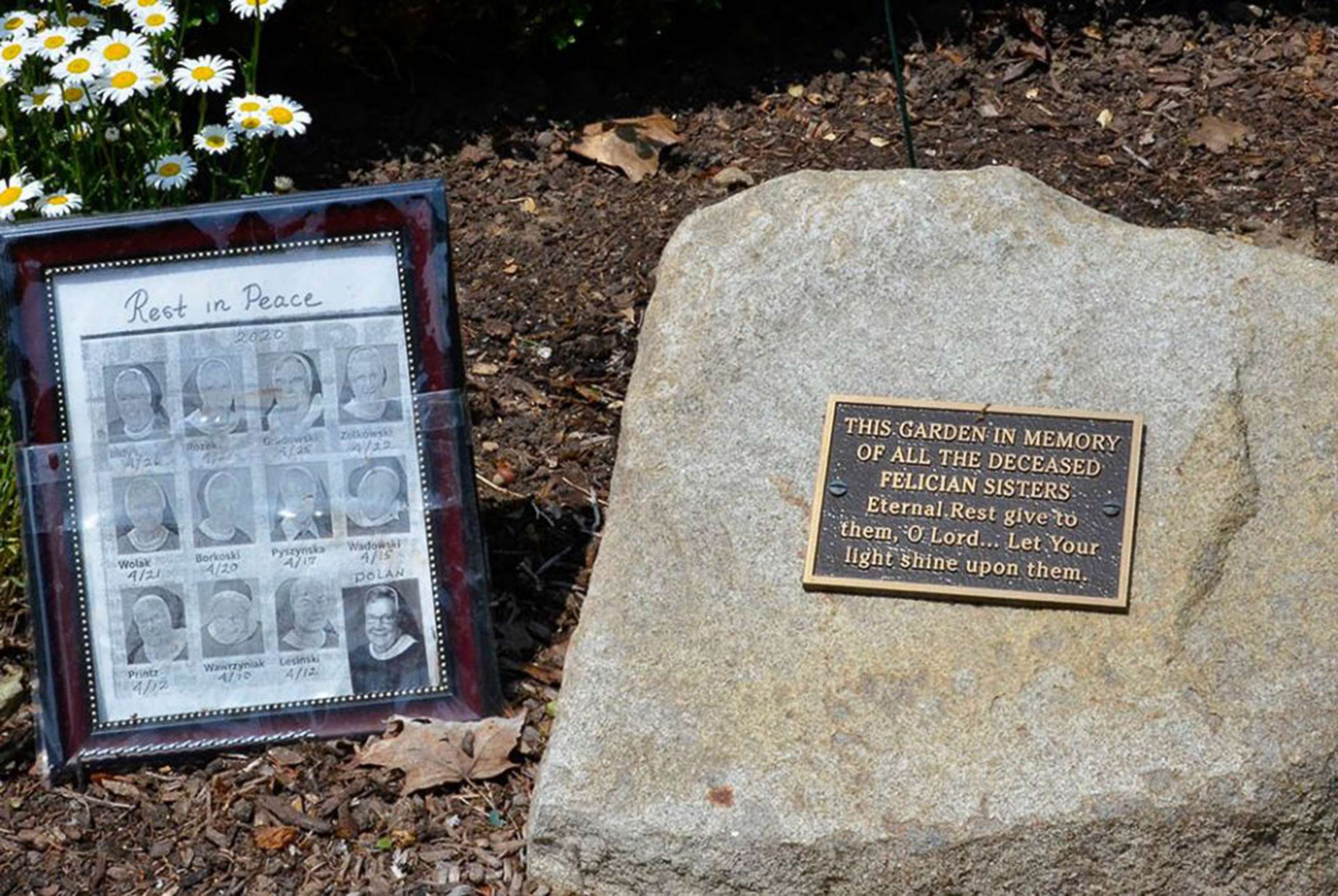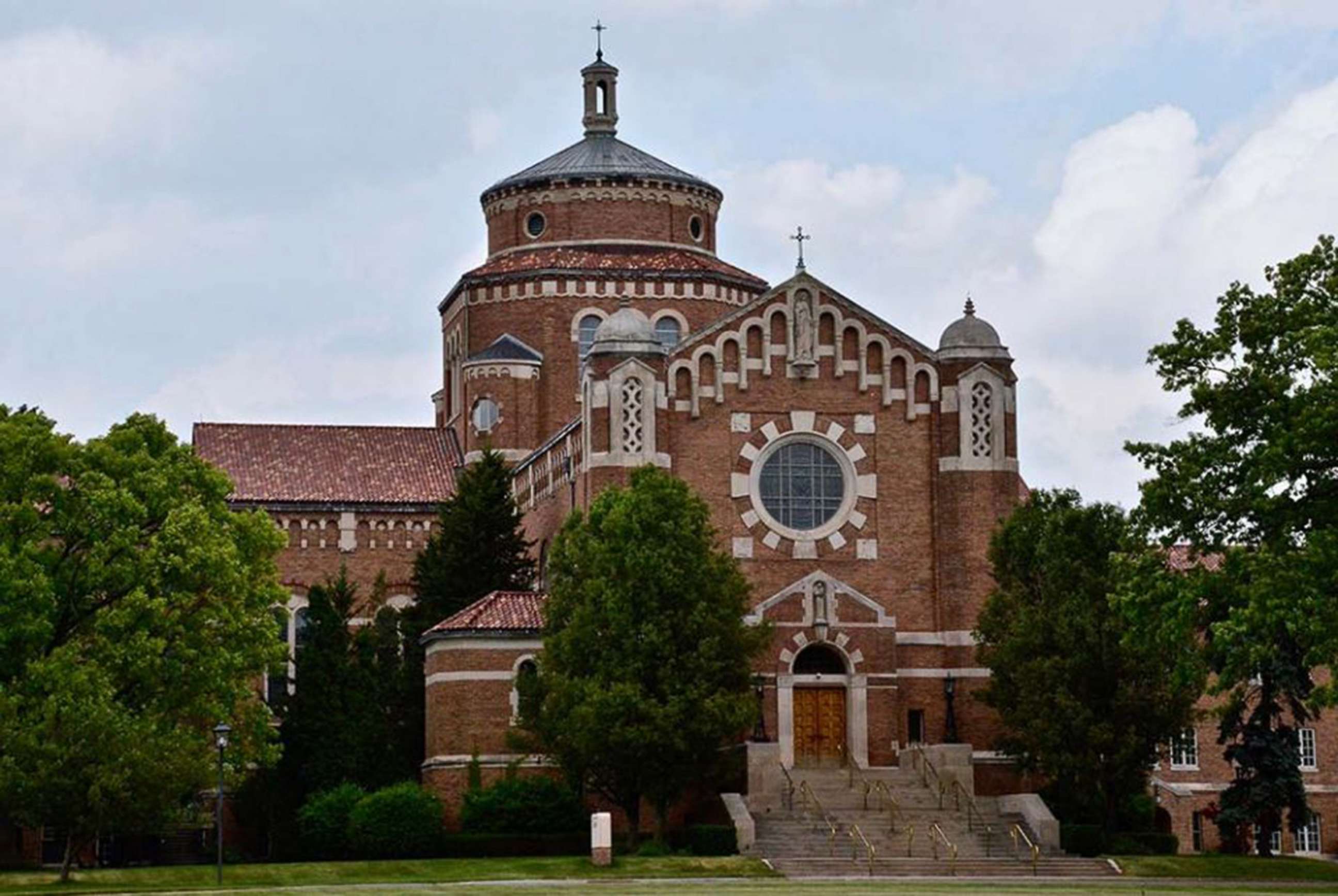At least 13 nuns from same Michigan convent have died since coronavirus pandemic began
All 13 were all from the Congregation of the Sisters of St. Felix of Cantalice.
At least 13 nuns from a single convent in Livonia, Michigan, have died since the COVID-19 pandemic began nearly three months ago.
A dozen nuns in the Congregation of the Sisters of St. Felix of Cantalice died after contracting the virus between April 10 and May 10, religious officials said. Another nun from the congregation died on June 27, according to the Global Sisters Report.
Family and friends of the sisters described them as a group of teachers, librarians and authors who "lived together, prayed together and worked together."
At least 18 other Felician sisters at the Michigan convent have also contracted the virus, according to the report.
"We couldn't contain the grief and the sorrow and the emotional impact," Noel Marie Gabriel, director of clinical health services for the Felician Sisters of North America, told the publication. "We went through the motions of doing what we had to do, but that month was like a whole different way of life. That was our most tragic time. It was a month of tragedy and sorrow and mourning and grieving."
The sisters, who ranged in age from 69 to 99, were longtime members of the Livonia convent who dedicated their lives to servicing others, according to their obituaries. Several were organists, others helped with needy children, and one even authored a 586-page book about the history of the convent. Another previously worked as a secretary in the English section of the Vatican Secretariat of State.

Separately, the Detroit Catholic news service reported that as many as 22 sisters at the Presentation of the Blessed Virgin Mary Convent in Michigan had tested positive for the coronavirus through early May.
The report comes as infection rates continue to soar, especially among essential workers like religious leaders.
In addition to the 13 sisters in Livonia, at least 19 other nuns have died in the U.S., including a Felician sister at the order's convent in Lodi, New Jersey; six sisters from two communities at a shared convent outside Milwaukee, Wisconsin; and three Maryknoll sisters in Ossining, New York, according to the the Global Sisters Report.
The actual number of deaths could be much higher, but the national figures aren't being tracked well, religious officials said.

In a memo to members earlier this month, Felician Sisters of North America officials said "some of our Sisters who have had COVID-19 are struggling to recover from a variety of effects, including continuing weakness, respiratory issues and more."
The virus can also cause lasting difficulties for those with other chronic medical conditions even after recovery, officials noted.
As of early July, Felician Sisters of North America officials said they planned to move forward "slowly loosening the tight restrictions under which Sisters in our convents, especially our larger convents, have operated for more than three months."
"We have resumed gathering in our chapels as much as we are able, depending on convent circumstances, for celebration of the Mass and opportunities for private prayer. Some of our Sisters continue to participate in daily Mass via television or other electronic devices," officials said in a statement. "Holy Communion is being distributed to some of our Sisters in their bedrooms."
"Sister leadership and convent lay leaders collaborate in creating opportunities for safe gatherings in our chapels, supporting infection control guidelines to control exposure to the virus which is, unfortunately, still present with us," it added.
As of Wednesday, some 617,000 people had died from the virus worldwide although the official toll could be much higher. The United States has become the worst-affected country, with more than 3.9 million diagnosed cases and at least 142,312 deaths.
More than 14.9 million people across the globe have been diagnosed with COVID-19, the disease caused by the new respiratory virus, but some experts say the infection rate could be as much as 10 times higher.
What to know about the coronavirus:
- How it started and how to protect yourself: Coronavirus explained
- What to do if you have symptoms: Coronavirus symptoms
- Tracking the spread in the U.S. and worldwide: Coronavirus map
Tune into ABC at 1 p.m. ET and ABC News Live at 4 p.m. ET every weekday for special coverage of the novel coronavirus with the full ABC News team, including the latest news, context and analysis.




